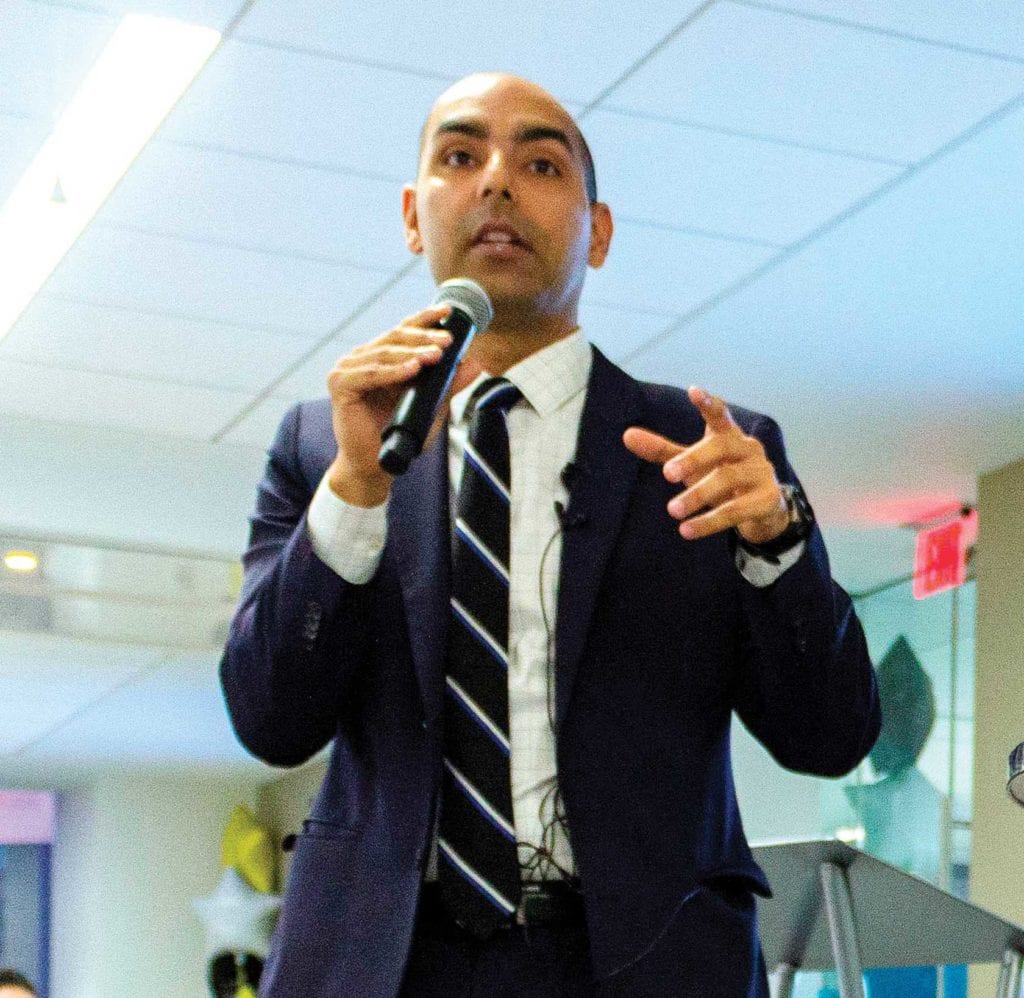Latino professionals call for broader opportunities
Growing population in Massachusetts needs better access to education, well-paying jobs

Following the release of a report last month that revealed that the Massachusetts Latino population could reach over 1 million by 2035, a group of Boston Latino professionals gathered Monday night to discuss what the numbers mean for their future.
“The implications of this is that we’re going to be really requiring more educational, more health services and also trying to figure out as well how we’re going to care for our senior citizens in our communities,” said Lorna Rivera, director of the Gastón Institute for Latino Public Policy at University of Massachusetts Boston, which released the report. “Education is correlated to getting the type of income that you will be able to attain.”
In the workshop, which was run by Latino mentoring nonprofit Conexión and accounting firm Ernst & Young, Rivera was joined by journalist Jesse Treviño and state Rep. Jon Santiago to discuss how, despite the growing Latino population both in Massachusetts and around the country, Latinos on average still do not enjoy the same quality of life as white citizens.
“If you have a large population that’s growing at a fantastic rate like Hispanic Latinos have in the past four years, but they’re making less money than the dominant Anglo,” Treviño said, “you end up being poorer than you were even 70 years ago, and this gap is actually accelerating.”
In addition to showing that the Latino population will reach 15 percent of the total in Massachusetts by 2035, the report revealed that the average age of that population will be in the 25-29 range; Dominicans and Puerto Ricans make up the majority of the Latino population in the state; Latinos have a higher birth rate than other demographic groups, including whites, and the majority of their population is native-born; and 10 percent of the state’s approximately 600,000 small businesses are Latino-owned.
“We have a special skill set that can help us to be better leaders,” said Santiago, offering the story of his childhood coming to Boston from Puerto Rico and growing up in a traditional Latino household as an example of the situations that shape Latino lives.
Santiago, an emergency room doctor who was elected to the state legislature in November, told the group that during his campaign he discovered that many of the Latinos in his community had never felt like they had a voice in politics, and he wants that to change.
“I knocked on so many doors of Hispanic and Latino people, and no one has ever knocked on their door,” Santiago said. “This is the first time anyone has ever asked for their vote, or asked what they care about.”
Treviño agreed, saying that now more than ever, Latinos need to make their voices heard.
“We are all living through one of the most historic times in the history of the country since its creation and since the Civil War,” Treviño said. “The changes that we see and a lot of the politics that are that we’re witnessing today will be the same politics that will drive the country’s government for the next 20 to 30 years, and it’s not a very positive story.”






